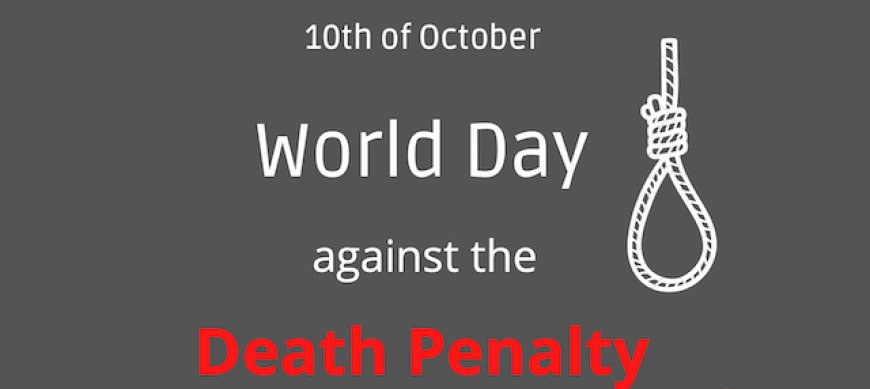Advocacy groups want death penalty abolished

Stakeholders in Nigeria’s justice sector have renewed calls for the abolition of the death penalty, urging the government to replace capital punishment with life imprisonment and adopt more humane approaches to justice.
The call was made in Lagos during the commemoration of the 23rd World Day Against the Use of the Death Penalty, themed “Death Penalty Protects No One,” and the launch of The Inclusion Project documentary titled “Justice Reimagined: Voices of Loss.”
The documentary highlights the experiences of victims of capital offences, offering a rare perspective on the human impact of Nigeria’s justice system.
It challenges the long-held notion that death sentences deter violent crimes, arguing instead that such punishment increases the risk of wrongful convictions and the irreversible tragedy of executing innocent persons.
Participants at the event called on authorities to amend relevant criminal laws to eliminate the death penalty and embrace a justice system rooted in fairness, rehabilitation, and the protection of human dignity.
TIP’s Director, Mrs Pamela Okoroigwe, said the campaign aims to promote restorative justice that prioritises victims’ needs rather than retribution.
“It is our hope that this documentary will serve as an educational tool for Nigerians and a call to the government to put a stop to the death penalty,” Okoroigwe said.
For too long, the death penalty has been defended on behalf of victims without actually asking them what they want. This documentary shows that many victims reject it—not out of sympathy for offenders, but because they understand that killing in response to killing does not deliver justice; it only deepens injustice.”
Also speaking, Associate Professor of Law at the University of Lagos, Abiodun Odusote, noted that research has consistently shown that the death penalty does not deter crime.
Several studies have concluded that the death penalty does not in any way deter crime. In Nigeria, we have been applying death sentences from time immemorial, yet crimes like murder, kidnapping, and banditry continue to rise,” he said.
Odusote added that while judges are legally bound to pronounce death sentences, many state governors have refused to sign execution warrants, creating an unofficial moratorium.
“Why don’t we formalise this moratorium so that offenders can serve long prison terms where they can show remorse for their actions?” he asked.
Similarly, Convener of the Criminal Justice Network of Nigeria, Nathaniel Ngwu, said the documentary captures the pain and disillusionment of victims whose loved ones were lost to violent crimes.
“It’s a clear indication that the death penalty is not helping victims of crime,” he said.
Ngwu urged the Federal Government to declare a moratorium on executions and review the status of inmates already sentenced to death.
He also encouraged Nigeria to learn from other countries—such as Malawi, Sierra Leone, and the United Kingdom—that have abolished or suspended capital punishment without recording an increase in crime rates.
“We want to be like those nations that adopted alternatives to the death penalty. If we can study how they achieved it, we can replicate similar success in Nigeria,” he added.
Speakers at the event stressed that genuine justice reform in Nigeria must focus on prevention, rehabilitation, and fairness, rather than retribution, to strengthen public trust in the justice system.

 admin
admin 


